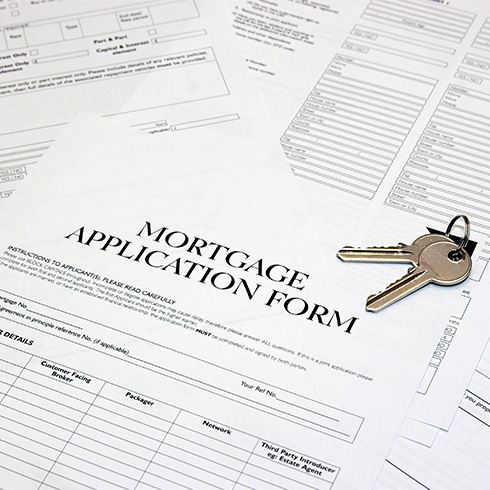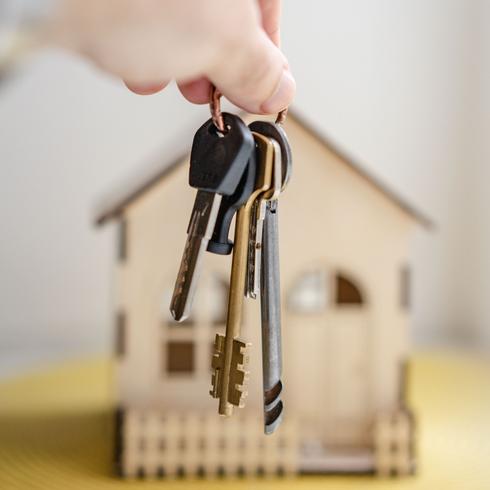According to the Canadian Real Estate Association, the average home price in Canada in July 2022 was $629,971. While this is slightly lower than the $662,924 the average Canadian home cost at the same time in 2021, it’s still out of reach for most first-time buyers. After all, according to Indeed, the average annual income for Canadians between 25 and 34 is $46,900. No wonder then that more groups of friends, or even siblings, are looking to pool their money and buy a home together. But how do you do it? And is it a good idea? Here’s what you need to know about buying a house with multiple owners in Canada.

Buying With Friends Is Not the Same as Buying With a Life Partner
When you buy a house with a life partner, you usually own the property in a joint-tenant agreement. This means that when one of you dies, the other becomes the owner of your share of the house. When you buy a house with a friend, you’re more likely to enter a tenants-in-common agreement. This means that when one of you dies, your stake in the house doesn’t go to the other owners but becomes part of your estate. The other owners can then buy that stake from your heirs.

Everyone Doesn’t Necessarily Own an Equal Share
In a tenants-in-common agreement, each party can own a different percentage of the shares. You then each pay a proportional share of the mortgage and all must be listed on the title. One of the first do’s when buying property with friends is to iron out who owns what percentage – and who pays what percentage of the mortgage – beforehand, with the help of a real-estate lawyer.

If One Party Defaults on Mortgage Payments, It Affects Everyone
In effect, the lender sees all the co-owners as one entity, so be sure that each party to the agreement can and will pay their share without fail every month. If one party defaults on the mortgage payments, the rest of you will be held liable for their share or it can negatively affect all your credit scores.

Finding a Mortgage Lender May Be Difficult
One of the early steps for first-time homebuyers is to find a mortgage lender who will finance the home, with you paying them back in monthly mortgage payments. Because of the complexity of tenants-in-common agreements, however, many mortgage lenders avoid these types of deals and you may have a harder time securing financing.

You Can Use the First-time Home Buyer Incentive
The Government of Canada’s First-time Home Buyer Incentive offers prospective first-time buyers who qualify 5 or 10 percent of the home’s purchase price to use as a down-payment, to be paid back after 25 years or when you sell the house. If you qualify, you can use this for your share of the down-payment and reduce the amount you need to pay back on your joint mortgage.

One Person’s Financial History Doesn’t Have to Torpedo the Deal
When one person in the group has a low credit score, it makes it more difficult for the group as a whole to secure a mortgage at more favourable interest rates. This doesn’t mean that you have to exclude them and find a new investment partner or scrap the idea altogether. Instead, you can exclude them from the property title and have a separate legal agreement to protect their interest in the co-ownership.

You Can Sell Your Share
What if your life circumstances change and you don’t want to co-own the house anymore? If the other partners don’t want to sell, it doesn’t mean you’re stuck. You can sell your share in the house to someone else.

Be Clear On the Property’s Purpose
One of the most important things to consider when buying with friends is why you’re doing it. Will the property be an investment property that you will rent out and use to gain equity? Will one of you live there? Will all of you live there and share the house? Being clear about the purpose of the property will help you decide on the size of the home you want to buy, how the shares are divided, and all the details about responsibilities and house rules you’ll need to iron out.

Don’t Forget About Taxes
Property taxes may vary across Canada but no matter where you live, you’ll still have to pay them. The tax collector only looks at the taxes on the property as a whole, so you need to decide among yourselves who will pay what portion of the total tax bill. When it comes to income tax, however, you get taxed on your stake in the property and whether or not you live there affects how much you pay. So, when it’s time to fill in your tax return, it’s really best to work with a tax expert.

Get All the Details Down in a Legal Agreement
Before you enter into the deal, make sure you discuss every detail involved: not only who pays what share of the mortgage and property taxes but also the transfer fees and other costs involved with the transaction, as well as repairs and maintenance, utilities, and the like. Be clear about everyone’s responsibilities and chores too. Decide on house rules and what-if scenarios, like what if one of you wants to have overnight guests or a pet. Finally, be clear on an exit strategy if the arrangement doesn’t work anymore sometime in the future. Then get all these details down in a legal agreement that everyone needs to stick to.
HGTV your inbox.
By clicking "SIGN UP” you agree to receive emails from HGTV and accept Corus' Terms of Use and Corus' Privacy Policy.




